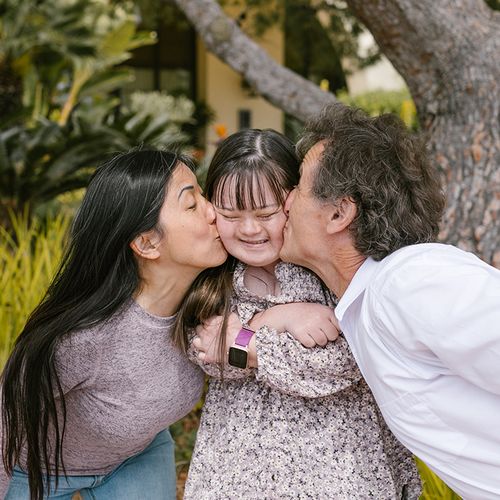A new study suggests that some babies who fail to respond to their name by one year of age may be at heightened risk for an autism spectrum disorder. Early identification can mean possible early intervention and better outcomes for affected children, say the authors of two studies aimed at early detection of the disorder.
Background
Autism spectrum disorder seems to be becoming more prevalent. According to the US Centers for Disease Control and Prevention (CDC), one in every 150 American eight-year-olds has some form of the disorder. That number is higher than prior estimates.
Autism's causes remain cloaked in mystery, although prior research has pointed to a strong genetic component.
Children and adults with autism experience difficulty with social and language skills and often display repetitive behaviors. However, the disorder is usually not diagnosed until age three or four--even though as many as half of parents with autistic children report problems with development progress before their child's first birthday.
Study #1
Researchers at the M.I.N.D. Institute at the University of California, Davis, found that one-year-old infants who don't respond to their names are more likely to be diagnosed with autism or another developmental problem by the time they're two.
This cue could represent an easy way to spot the disorder early on, experts said.
"One of the challenges has been finding an early exam in the general practitioner's or pediatrician's office that can serve as a warning sign or diagnostic indicator," said Dr. Andy Shih, chief science officer for the nation's leading autism advocacy group, New York City-based Autism Speaks. "That's what this paper is getting at. It doesn't mean that (a nonresponsive child) is destined to become autistic, but there seems to be a higher proportion who later go on to develop autism. This, along with many other clues, such as language development, eye contact and even head circumference, are potentially simple diagnostic tools that could be used in the general practitioner setting."
Second Study Also Points To Communication Skills
A team at Vanderbilt University in Nashville, Tennessee, found that younger siblings of children with autism perform below par on tests of social and communication development compared with younger siblings of normal children. These deficits may represent the early indications of an autism spectrum disorder, the researchers said.
“This is demonstrating that even though siblings may not meet the diagnostic criteria of autism, they seem to also have deficits in language and the social domain. They're not developing as typical, normal children," Shih said. "This highlights the importance of paying attention to siblings of autistic children in terms of development. It also shows the importance of early diagnosis. If these deficits or delays can be identified earlier, it's a great opportunity to provide intervention."
Financial Implications
A third study, from researchers at Harvard University and ABT Associates Inc., of Lexington, Massachusetts, found that each individual with autism accrues about $3.2 million in costs over a lifetime, with lost productivity and adult day care making up the lion's share.
It was already known that autism costs society more than $35 billion annually in direct and indirect expenses.
